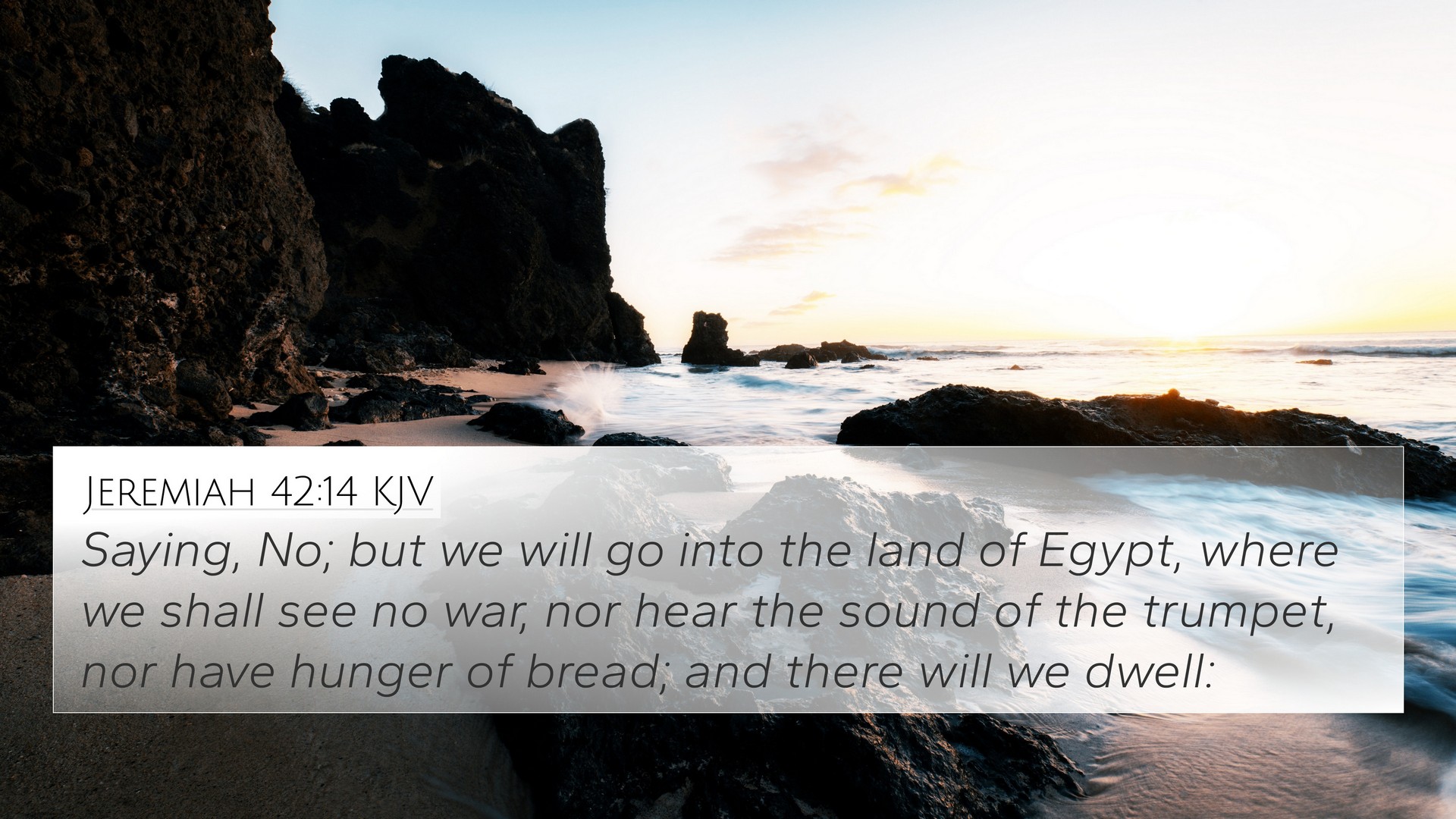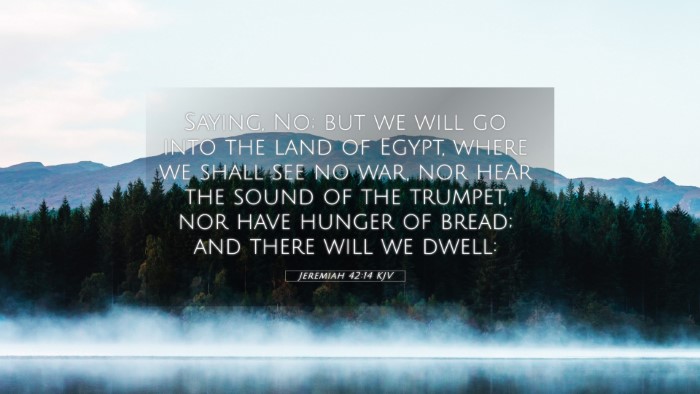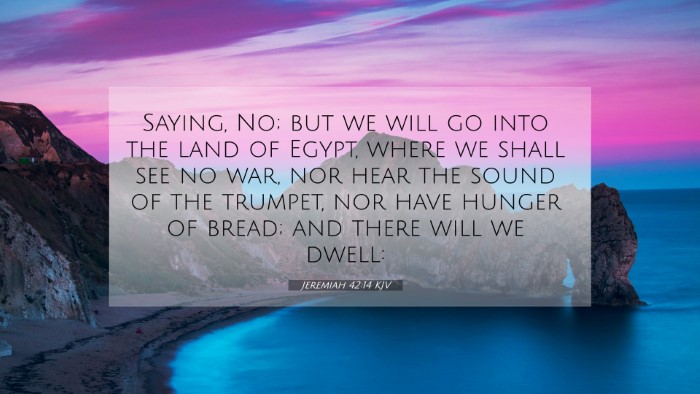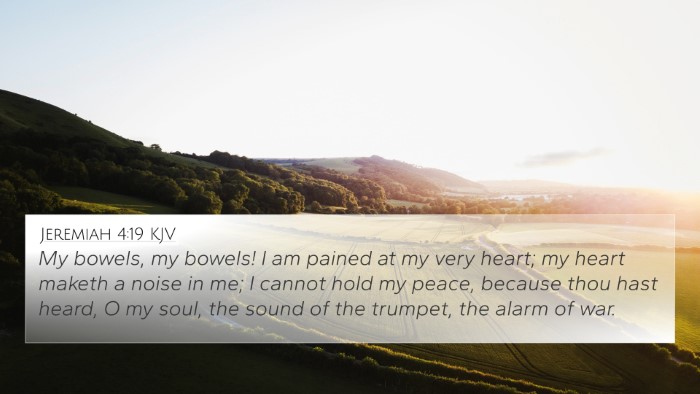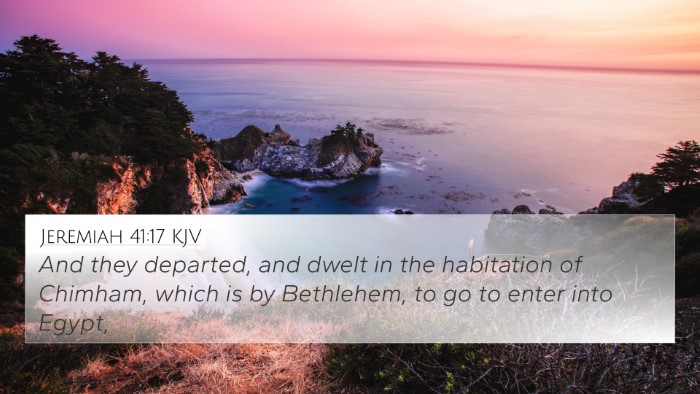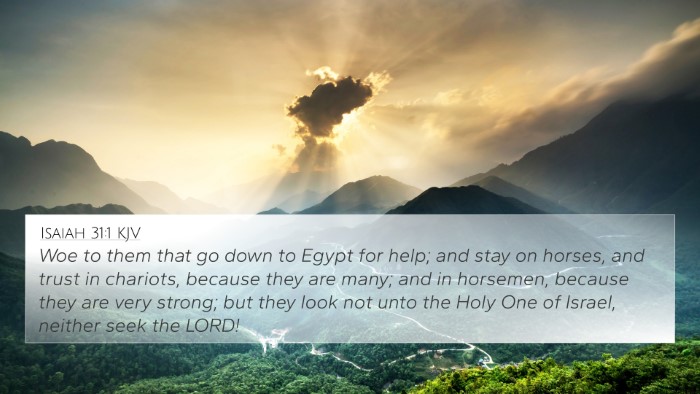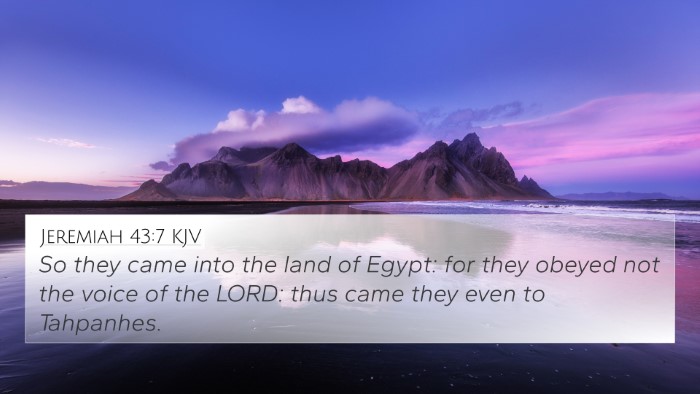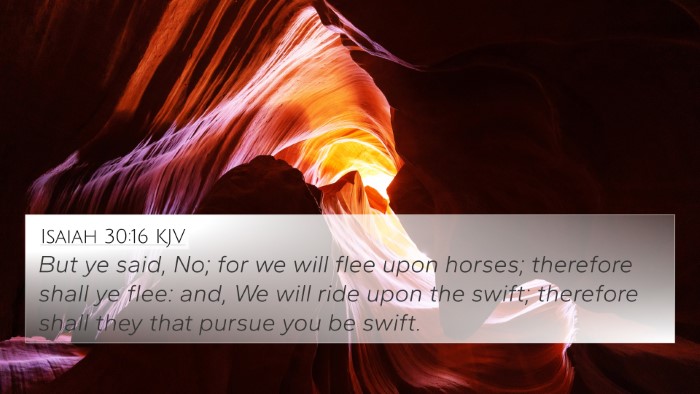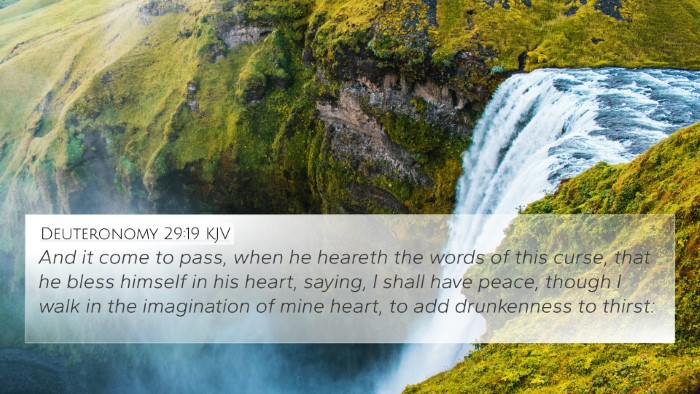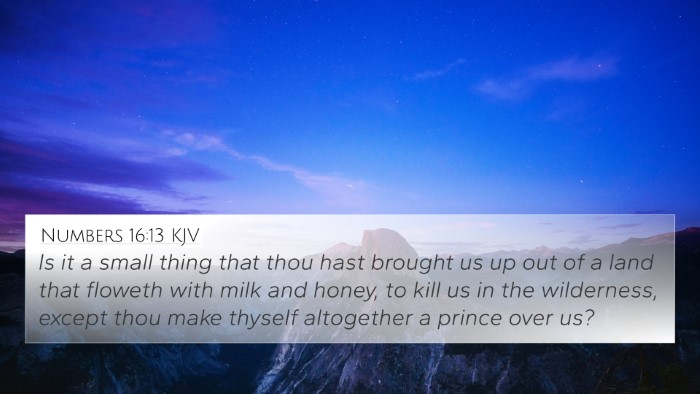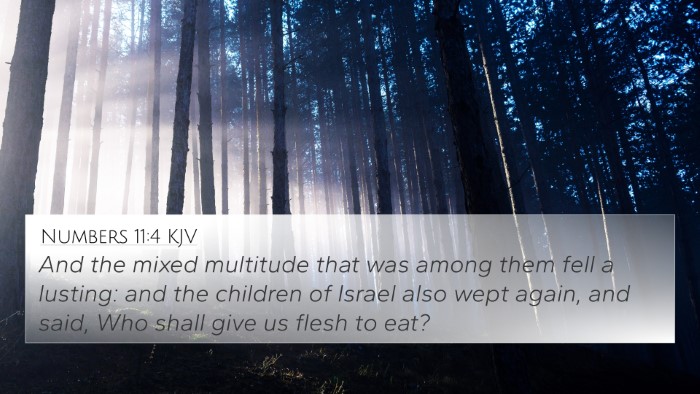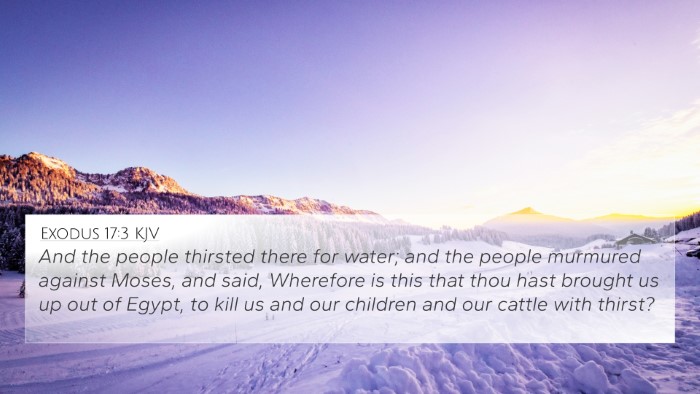Understanding Jeremiah 42:14
Jeremiah 42:14 states, "But we will go to the land of Egypt, where we will not see war or hear the sound of the trumpet or be hungry for bread; and we will dwell there." This verse captures the Israelites' desire for physical safety and sustenance amidst the chaos they faced.
Contextual Overview
In the broader narrative of Jeremiah, the Israelites are looking for guidance after the destruction of Jerusalem. They have just experienced profound loss and uncertainty, seeking to establish their future amidst divine counsel and human instinct.
Commentary Insights
-
Matthew Henry's Commentary:
Henry emphasizes the folly of the people in pursuing Egypt for refuge. He argues that their choice reflects a lack of trust in God’s promises and a preference for human security over divine guidance. Henry notes that turning to Egypt signifies a rejection of the grace and help God could provide.
-
Albert Barnes' Commentary:
Barnes elaborates on the irony of the Israelites’ desire to return to Egypt, a place of bondage. He suggests that their fear of facing challenges in their homeland pushes them toward a solution that ultimately leads back to oppression. He warns against looking to the world’s ways for comfort rather than turning to God.
-
Adam Clarke's Commentary:
Clarke interprets this verse as a vivid illustration of human nature's tendency to seek immediate relief from suffering instead of waiting on God’s direction. He notes that the fears expressed—war, hunger, and instability—are common to humanity, yet highlights that faith would lead to different choices.
Thematic Connections
Jeremiah 42:14 can be analyzed within the wider scriptural context that emphasizes themes of faith versus fear, reliance on God versus reliance on human understanding, and the consequences of disobedience.
Notable Cross-References
- Isaiah 31:1: "Woe to those who go down to Egypt for help..." - A warning against seeking alliances with worldly powers.
- Exodus 16:3: "If only we had died by the Lord's hand in Egypt..." - Reflects a similar sentiment of longing for the past in a time of trial.
- Romans 8:31: "If God is for us, who can be against us?" - This verse contrasts the Israelites' fear by affirming trust in God.
- Psalm 118:8: "It is better to take refuge in the Lord than to trust in humans." - Encouraging reliance on God over human solutions.
- Proverbs 3:5-6: "Trust in the Lord with all your heart..." - A call to trust God rather than lean on personal understanding.
- Genesis 47:1-6: The story of Jacob going to Egypt during famine. This provides insight into historical context of movement toward Egypt during hardship.
- Jeremiah 37:7: A similar situation where God warns about trust in Egypt.
- Matthew 6:25-34: Jesus teaches about not being anxious for one's life, which links to the worries of the people in Jeremiah’s time.
- Philippians 4:19: "And my God will meet all your needs according to the riches of his glory..." - Assurance of God’s provision based on trust.
- Hosea 11:1: A reflective verse about Israel’s relationship with Egypt and God's call to them.
Inter-Biblical Dialogue
The connections established through cross-referencing reveal a rich dialogue across the Scriptures. The choice to go to Egypt not only highlights immediate fears but also reverberates with themes of divine providence and human failure throughout Biblical history. By understanding this verse in the light of its biblical and historical context, readers may glean deeper insights regarding their own applications of faith and reliance on God amidst trials.
Conclusion
Jeremiah 42:14 serves as a poignant reminder of the struggle between human desire for safety and God's invitation to trust His plans. The warnings found throughout both the Old and New Testaments encourage believers to seek refuge in God's promise rather than in the transient comforts of the world. By examining these connections, individuals can cultivate a deeper understanding of the Bible and enrich their spiritual lives through reflective study and prayer.
